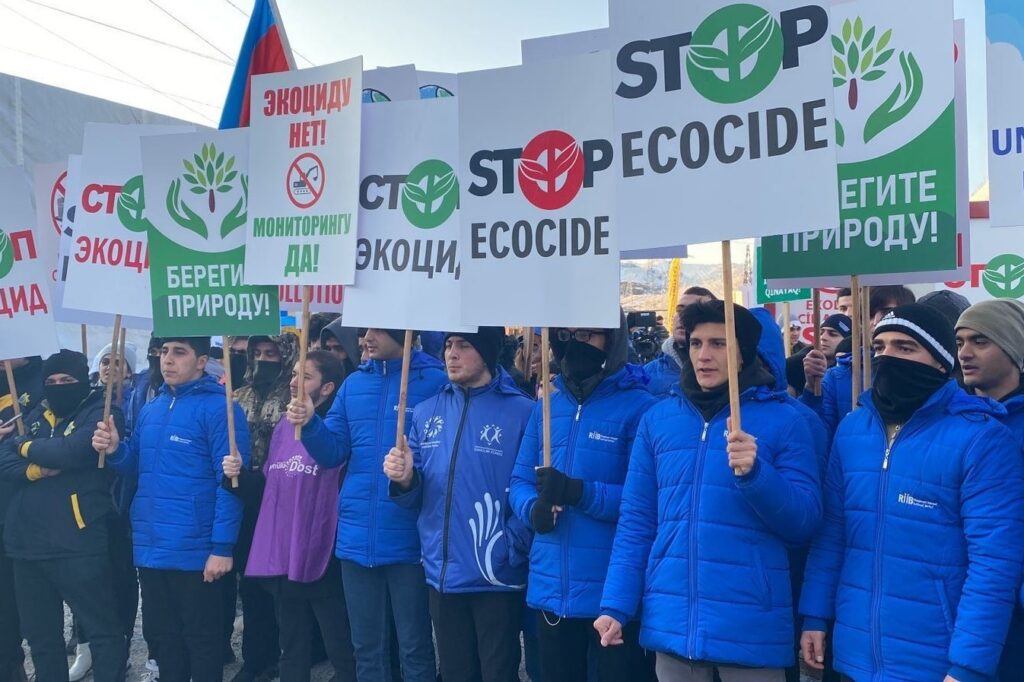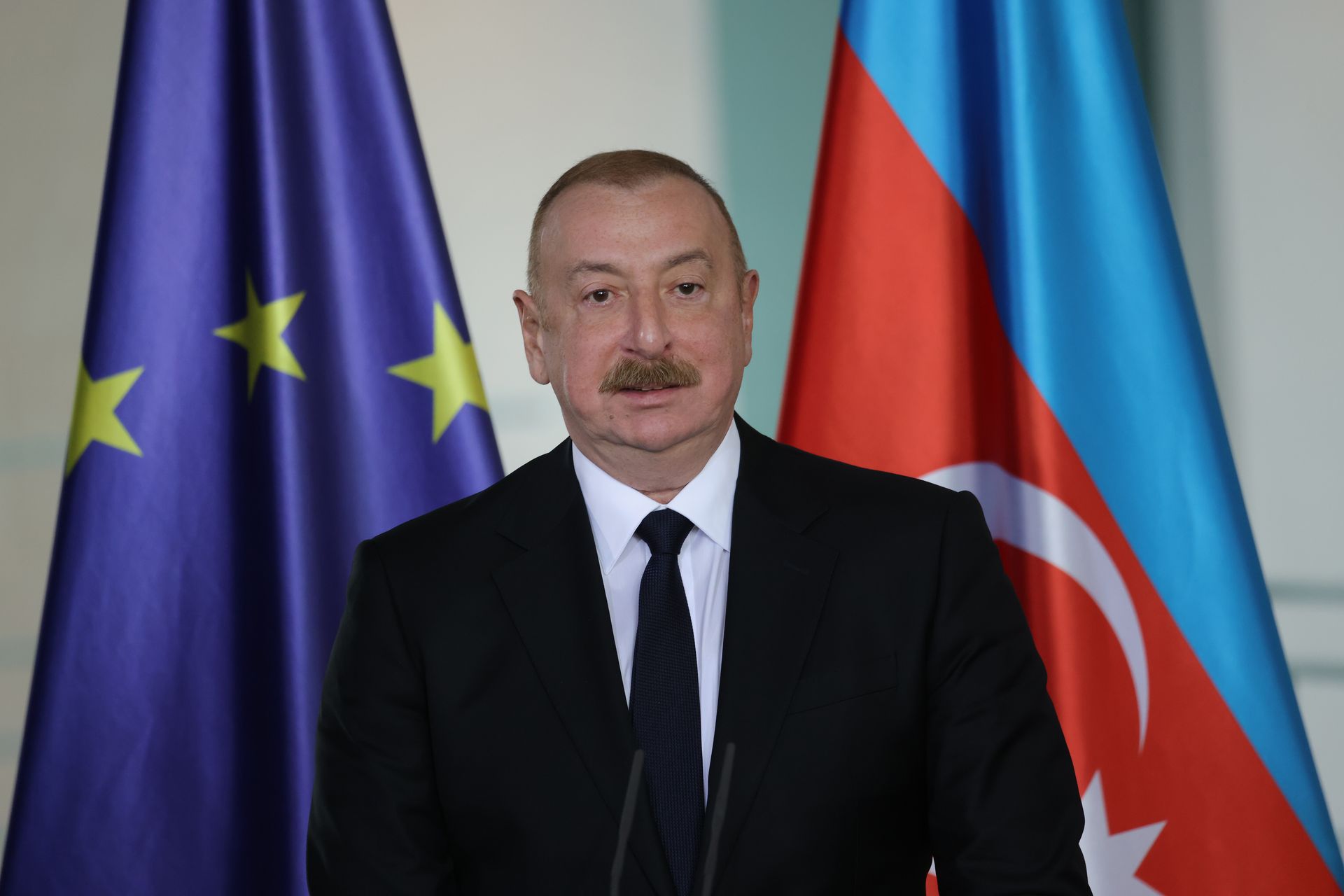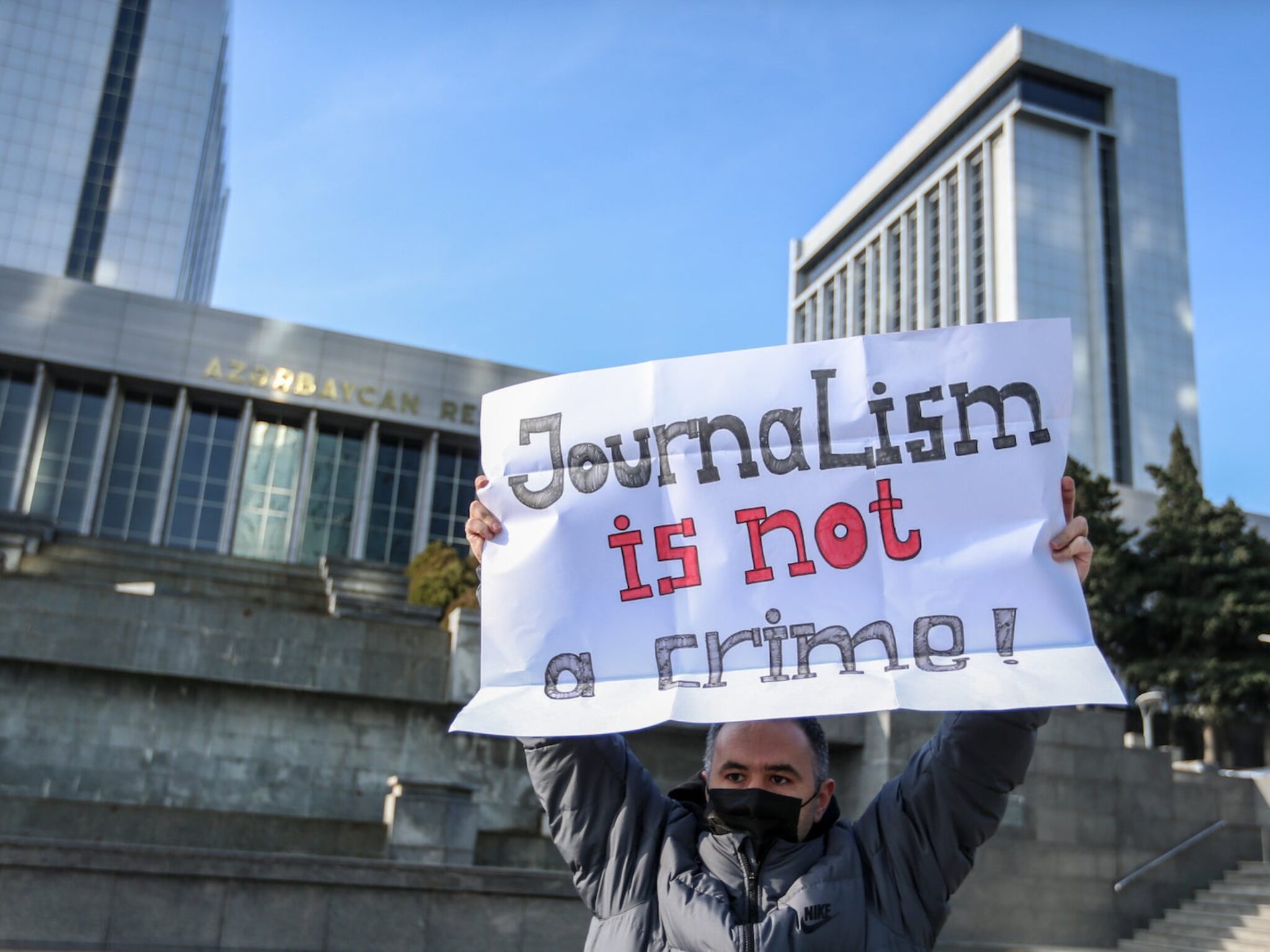COP29 Host Azerbaijan Never Had a Free Press, and It’s Only Getting Worse
5 Mins Read
Months before it hosts this year’s UN climate summit, Azerbaijan is being criticised for its crackdown on journalists, exacerbating an already appalling record of press censorship.
2024 may be a year where climate change is on the ballot, as half the world votes to elect leadership regionally, nationally and internationally. The free press, however, is facing tremendous challenges in reporting on the climate crisis, with journalists getting arrested or even killed globally.
You’d think, though, that the UN’s climate conference – where leaders from across the world convene to attempt to reach deals to slow and stop climate change – would be a safe haven for the media. But this year’s host, Azerbaijan, is actually among the worst countries in the world when it comes to press freedom, ranking 164th out of 180 on the Press Freedom Index.
It’s not uncommon for the UN to hold its COP conferences in contentious places – last year’s host was the UAE, a fossil fuel giant whose oil company has the largest net-zero busting plans in the world, and one that isn’t much better with media freedom (it sits four places above Azerbaijan at 160th).
The appointment of Azerbaijan, another petrostate, as a host is already shrouded in controversy, but now, Human Rights Watch has reported that at least 25 journalists and activists have been arrested or sentenced in the last year, nearly all of whom still remain in custody. It’s a damning finding, especially when misinformation is ravaging the global fight against climate change.
An unwanted track record of imprisoning dissidents

Azerbaijan has been reportedly planning to use an Olympic-style truce and focus on preventing future conflicts over climate change at COP29, but there’s very little to be optimistic about when it comes to the government’s transparency.
Media is under strict control of the government, and the country is considered one of the most corrupt in the world, ranking 154th out of 180, according to Transparency International. Political opposition is essentially nonexistent, with president Ilham Aliyev – in his fifth consecutive term now – winning over 92% of the vote in February’s elections. (Two months later, he called the country’s fossil fuel reserves “a gift of the gods”.)
A long-standing war with neighbouring Armenia was reignited last year over the disputed Nagorno-Karabakh region, which displaced over 100,000 people from their homes. And the country has been accused of holding political prisoners and detaining journalists. These instances have placed the de facto dictatorship on par with those in Iran, Myanmar and North Korea on Freedom House’s political and civil liberties list.
Ahead of the election, investigative journalists Sevinc Vaqifqizi and Ulvi Hasanli, who run human rights outlet Abzas Media, were arrested on currency smuggling charges, with their families also being pressurised. Four other reporters from the outlets were arrested before the election as well, alongside a dozen other media workers, lawyers, activists and opposition politicians.
In April, Anar Mammadil, founder of the Climate of Justice Initiative, was similarly arrested on smuggling charges. Meanwhile, Gubad Ibadoghlu, a civil rights activist and research fellow at the London School of Economics, was imprisoned last year and has fallen ill to the point of requiring immediate medical attention, which his family says he’s not receiving.
“COP29 lends legitimacy on the world stage to the government’s illegitimate imprisonment of my father,” Ibadoghlu’s son Ibad Bayramov told the Guardian. “As his health has deteriorated to extreme levels, western governments continue to meet weekly with their Azerbaijani counterparts regarding COP29. Meaningful progress on climate change cannot be achieved in a country where individuals like my father are imprisoned and tortured for speaking out.”
Azerbaijan hits back, but media safeguards crucial at COP29

At this month’s pre-COP29 climate talks in Bonn, a protest was held at the entrance that called for the release of 23 Armenian political prisoners held in Azerbaijan – some demonstrators accused its government of genocide. Protests are rare in the state, and any rallies that are held are done so under strict surveillance.
“Holding COP29 in Azerbaijan raises serious concerns about the possibility of advancing ambitious climate action in negotiations,” said Myrto Tilianaki, a senior environmental advocate at Human Rights Watch. “Governments attending the Bonn preparatory meeting should call out Azerbaijan for its repression of civil society and make clear that they will actively confront any attempts to weaken robust climate policies.”
“Azerbaijani authorities must immediately end the growing crackdown on human rights and independent media and respect, protect, promote and fulfil the human rights of everyone including the right to freedom of expression and media freedom. Authorities must stop targeting independent media,” Natalia Nozadze, Amnesty International’s South Caucasus researcher, said in March after police raided the offices of independent outlet Toplum TV, whose YouTube channel was hacked and content deleted.
“With the country set to host the climate conference COP29 in November this year, it is imperative that this international spotlight is used to demand respect for human rights.”
Azerbaijan, though, hit back at activists’ claims. “We totally reject the claims about [a] crackdown against human rights activists and journalists in Azerbaijan. No one is persecuted in Azerbaijan because of political beliefs or activities,” a government spokesperson told the Guardian.
“As in any rule-of-law based society, any detention or imprisonment of a person who is suspected in illegal activities is subject to the requirements of investigation and fair trial, based on relevant laws and regulations. Instead of waiting for the results of criminal cases and investigations, as well as court rulings… to call on Azerbaijan to release suspects is in open contradiction with legal procedures.
“As COP29 president, Azerbaijan lays out its vision and pillars for a successful year of climate negotiations, encouraging an open and direct dialogue among all nations, and we believe all the layers of society should contribute to successful efforts to tackle the climate change challenge.”
The country is well within its right to defend itself, but the evidence speaks for itself. This is the third year in a row (after Egypt and the UAE) that the UN is hosting its annual climate summit in a country helmed by authoritarian leaders with poor human rights records. External factors may have left the UN with no choice but to choose Azerbaijan as a host, but it must find a way to issue safeguards for journalists and activists to realistically advance climate action.



